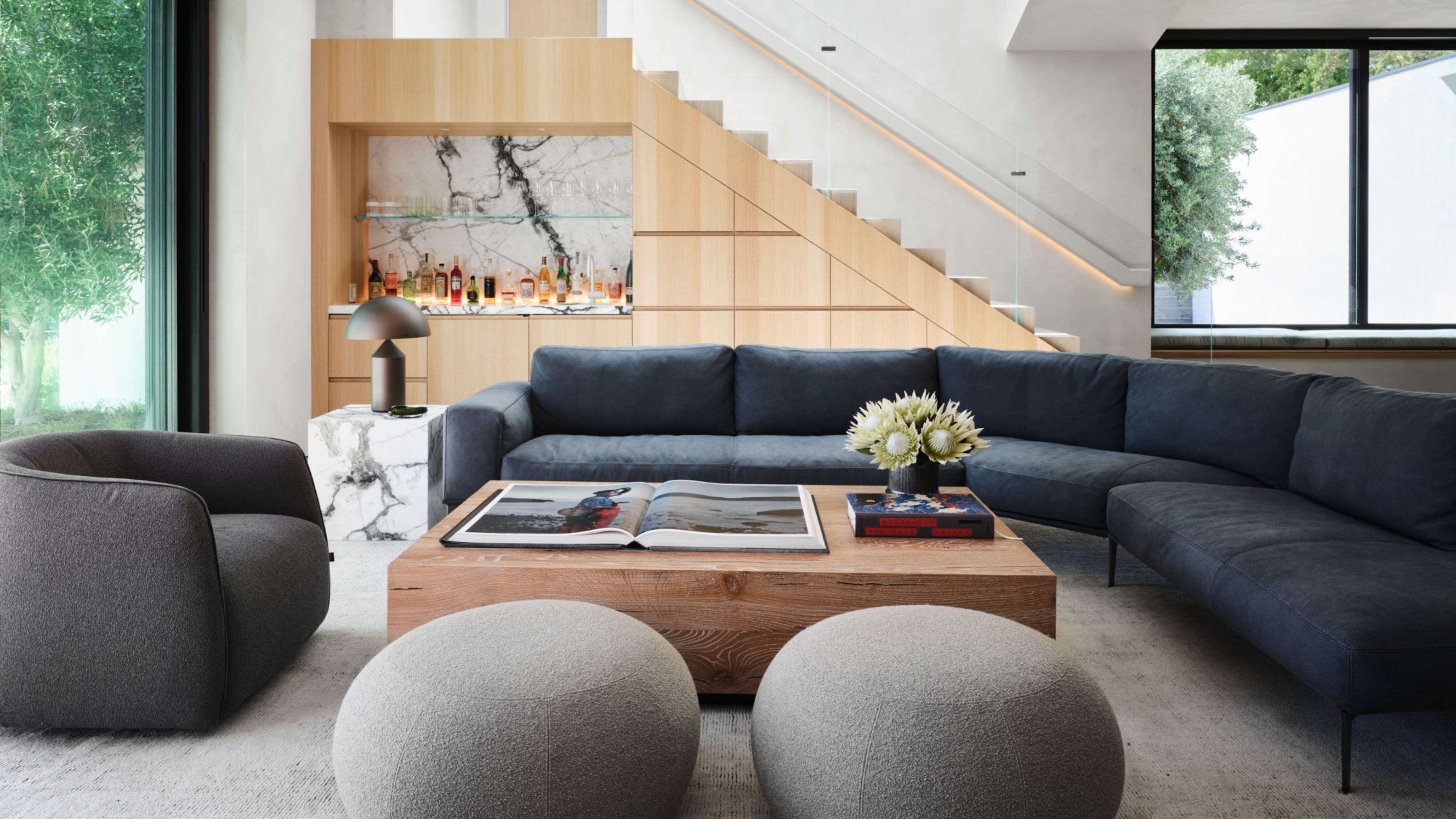
It's a common misconception that sectional sofa ideas are reserved only for large, open-concept spaces. On the contrary, these behemoths of the design world can be configured (and re-configured) to seamlessly slip into even smaller living rooms, enhancing the flow and style of the space.
The best sectional sofas are configured in an L or U shape, arguably the most versatile seating arrangement. "A corner sofa becomes a centerpiece of the space, it exudes comfort and creates the perfect setting for relaxation or bringing a group together," says Zoë Bailey, an associate at design agency StudioMorey. "It's efficient, creating lots of opportunity for seating, and works well pairing with eclectic individual statement chairs."
It's flexibility like this that helps tip the scales in the sofa vs sectional debate. If you're looking for ways to make a sectional look good in your space, we've found 10 ideas from interior designers to inspire you.
10 Sectional Ideas With Style
1. Zone a large open space with a chaise
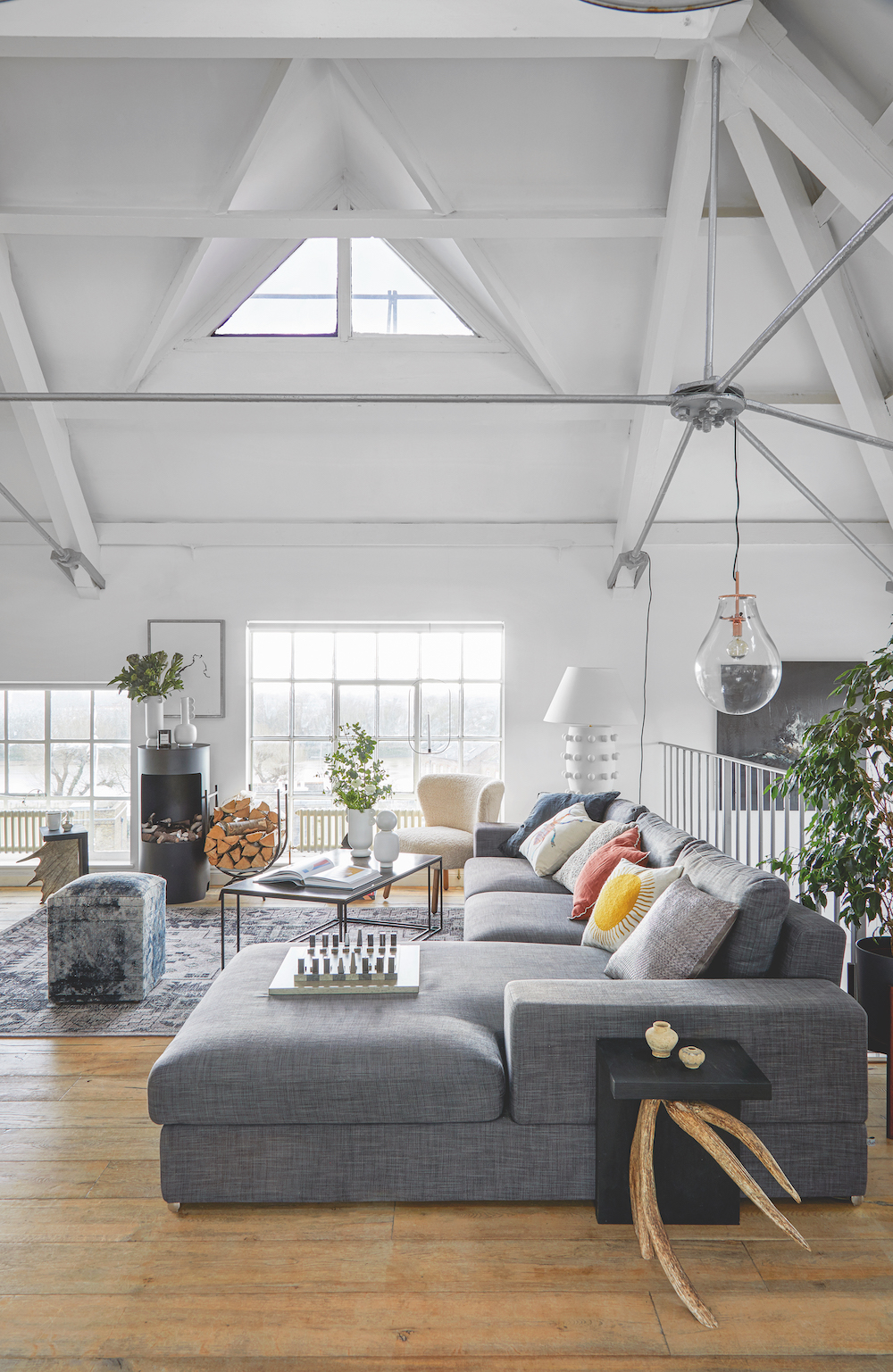
Given their size and customizable shape, large L-shaped sectional sofas enable you to zone a big, open-plan space by creating subtle divisions where walls might have once been.
Depending on the shape and layout you choose for your sectional, you can create walkways in your room, and gently control its flow or encourage conversation — one of the most important living room design rules.
2. Place sectional sofas back to back
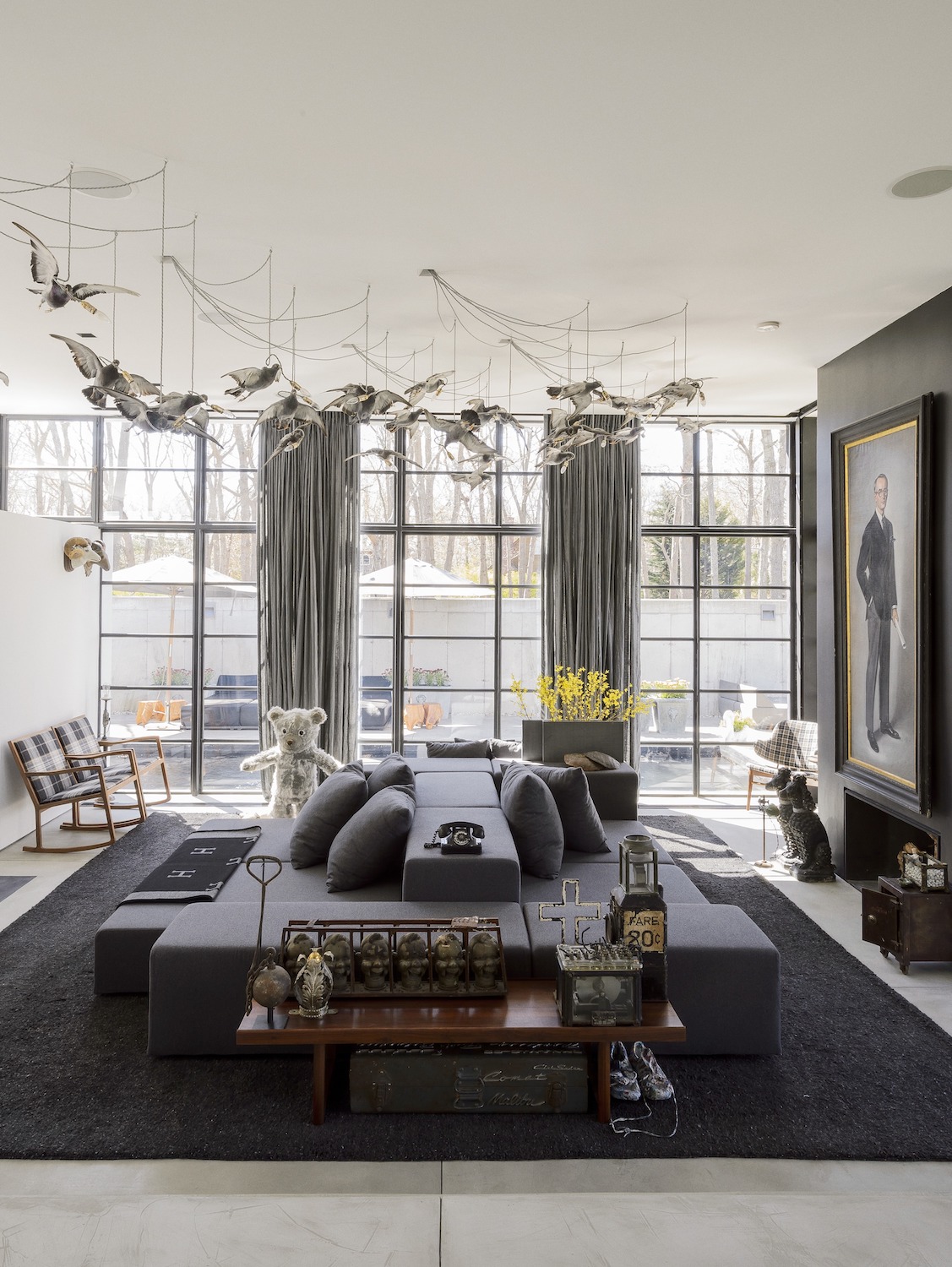
While couches in L and U shapes are a classic arrangement that works in most spaces, the dual-aspect sofa trend is one that designers are embracing right now.
Not only does it make a stylish statement and allow for a more subtle separation of the space, but it also ensures you have plenty of seating, and, with additional ledges available, enough flat surfaces for gatherings.
"In larger spaces, it's a good idea to consider positioning sectionals in the center of the room to anchor the space and zone that area to make it a socializing focal point and hub or conversation, without being closed off," says Charu Ghandi, founder of design studio Elicyon. "This gives the illusion of a more open-plan space that invites guests to the center, while still being able to branch off into other areas of the room."
3. Create a cosy reading corner or snug
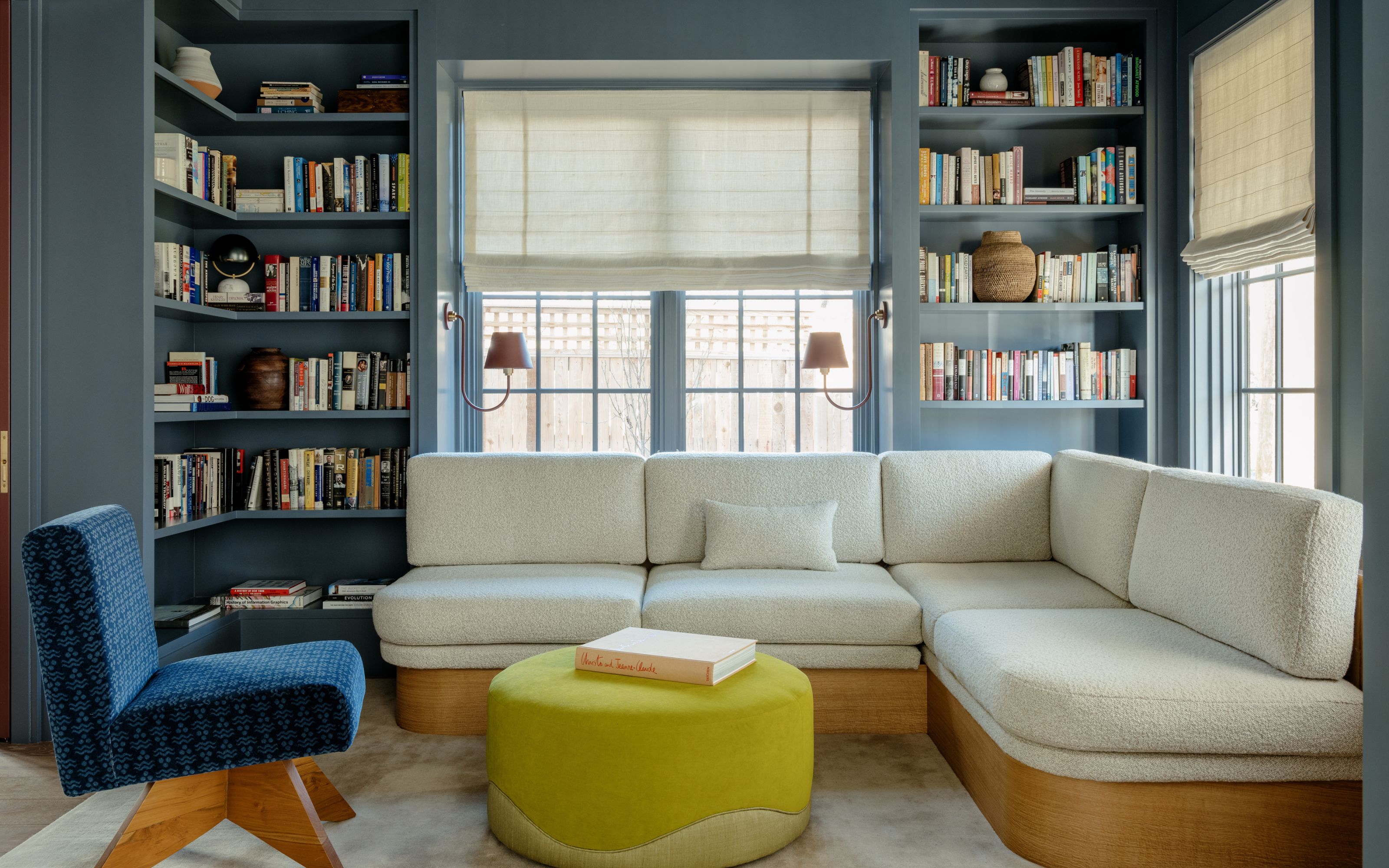
With many of us spending a lot more time in our homes over the past few years, being able to carve out quiet and cozy spaces for relaxing has become more and more important. A soft, corner-hugging L-shaped sectional is one of the key buys for a minimalist reading nook.
Here, an L-shaped sofa tucked neatly into a corner will create a cocooning vibe that will encourage quiet time and provide somewhere to recoup. Choose rich colors and sumptuous fabrics to snuggle into.
"It may seem obvious, but ensure the chaise is fitted to the best side, so it doesn't block a door or leave a gap of dead space," recommends Omar Bhatti, founder of Space Shack. "It's easy to forget some of the practical elements when planning your living space."
4. Encourage sociability with a u-shape
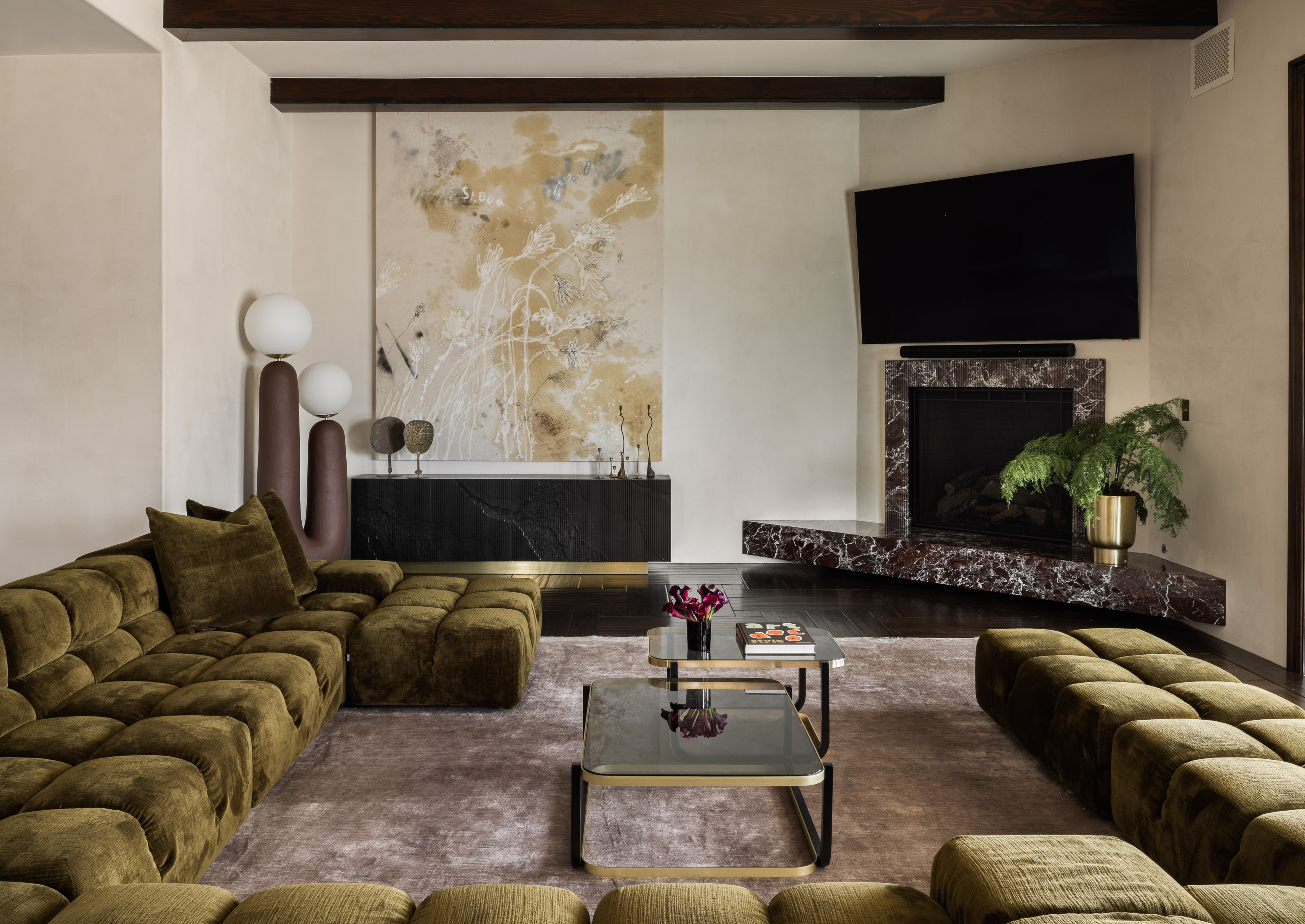
If you enjoy entertaining, and space allows, consider wrapping seating around in a U-shape with three sections. The beauty of this style of sofa is that it encourages sociability, while also providing a spot where more than one person can fully lounge.
"This year we have really seen the revival of iconic 1970s in living room trends and furniture pieces," says Zoe Bailey, associate at StudioMorey. "A U-shaped sofa offers the same social benefits as a sunken conversation pit, without having to undertake significant renovations or invest too much in a trend."
"U-shaped sofas are the perfect social centerpiece to a room, by creating an enclosed, informal environment that encourages sitters to face each other, rather than a TV," she adds.
5. Personalize your sectional with pattern
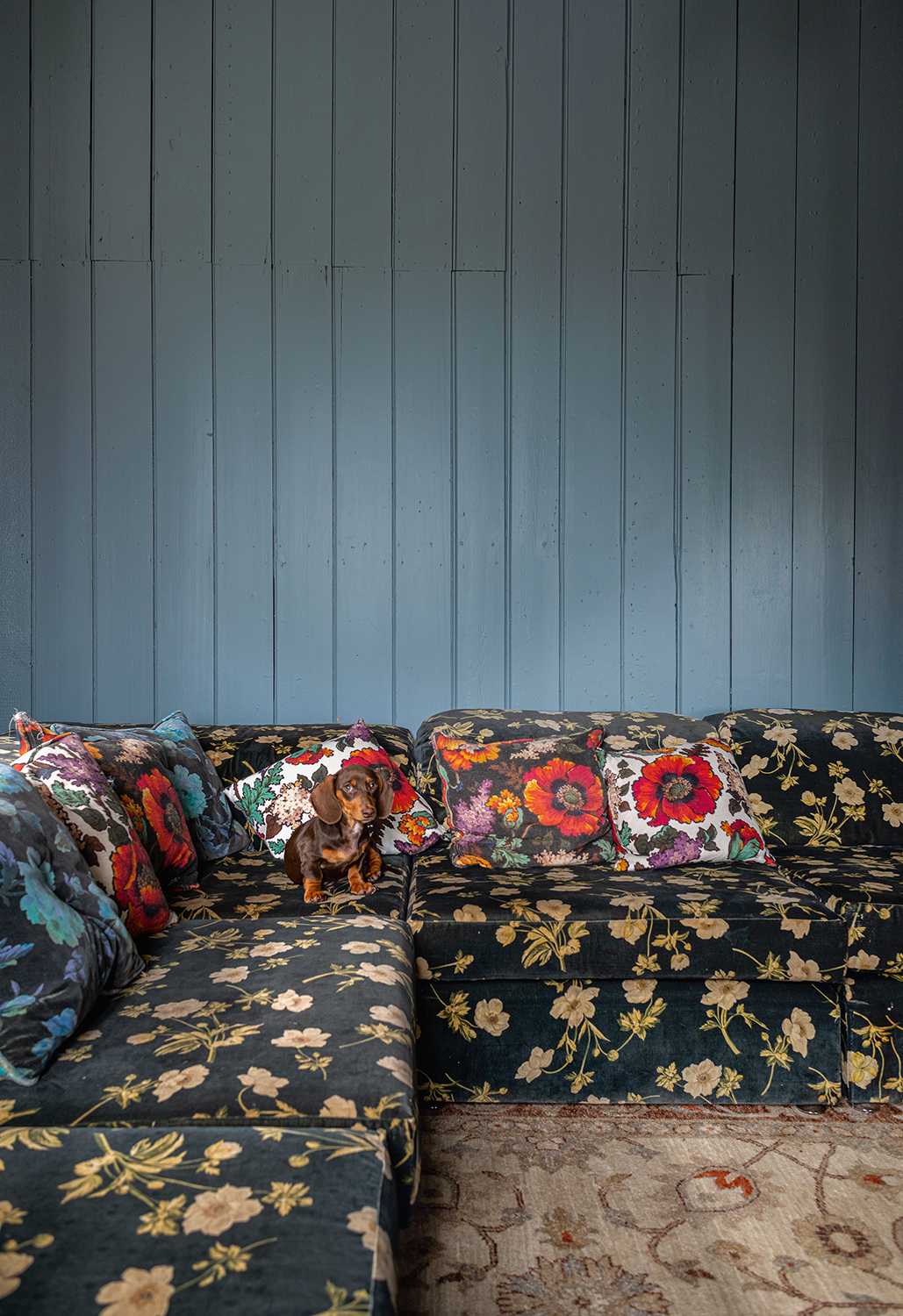
Another great sectional idea is to personalize your space with bold patterns through the choice of upholstery, as well as the configuration and add-ons you choose.
"The flexibility of a modular sofa together with the use of design options such as removable upholstery coverings, and in some cases changeable legs, different seat cushion fillings and arm types make a sectional sofa as individual as its owner," says Denis Barclay, senior furniture consultant at Chaplins.
6. Create calm with low slung Scandi-style
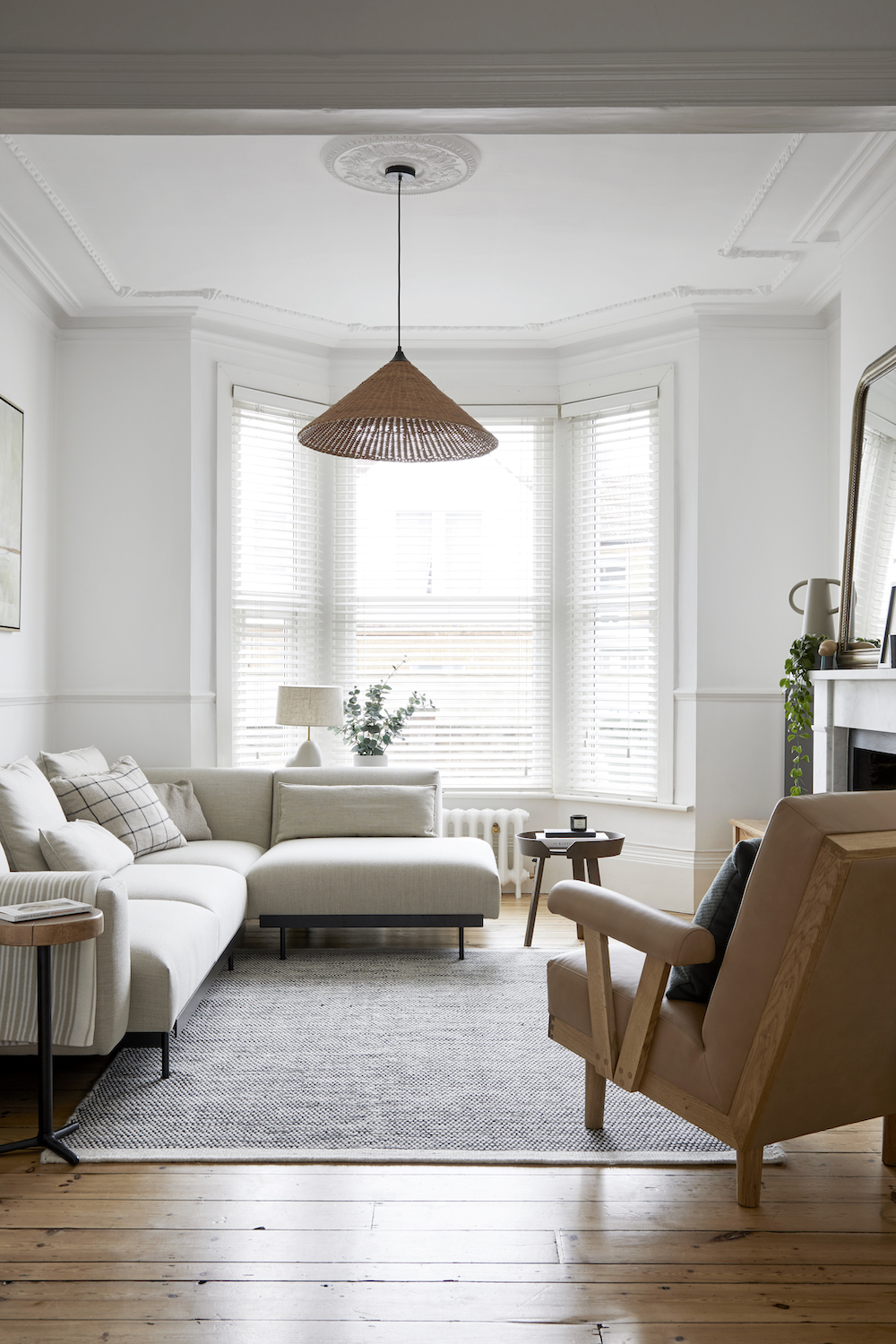
Clean lines and a pale pared-back palette evoke minimal Scandinavian design, which works well in small spaces. This unfussy aesthetic also suits low-slung sectional sofa ideas.
"When designing for small living rooms, we usually recommend a sofa with a chaise rather than a full L-shape," says StudioMorey's Zoe Bailey. "This is particularly useful for family-style snug rooms as we can create a cozy atmosphere for relaxing, without using furniture pieces that will overwhelm the room. If your corner sofa is in front of a window, make sure to keep the back low to avoid blocking any natural light or views outside."
7. Open up a small room
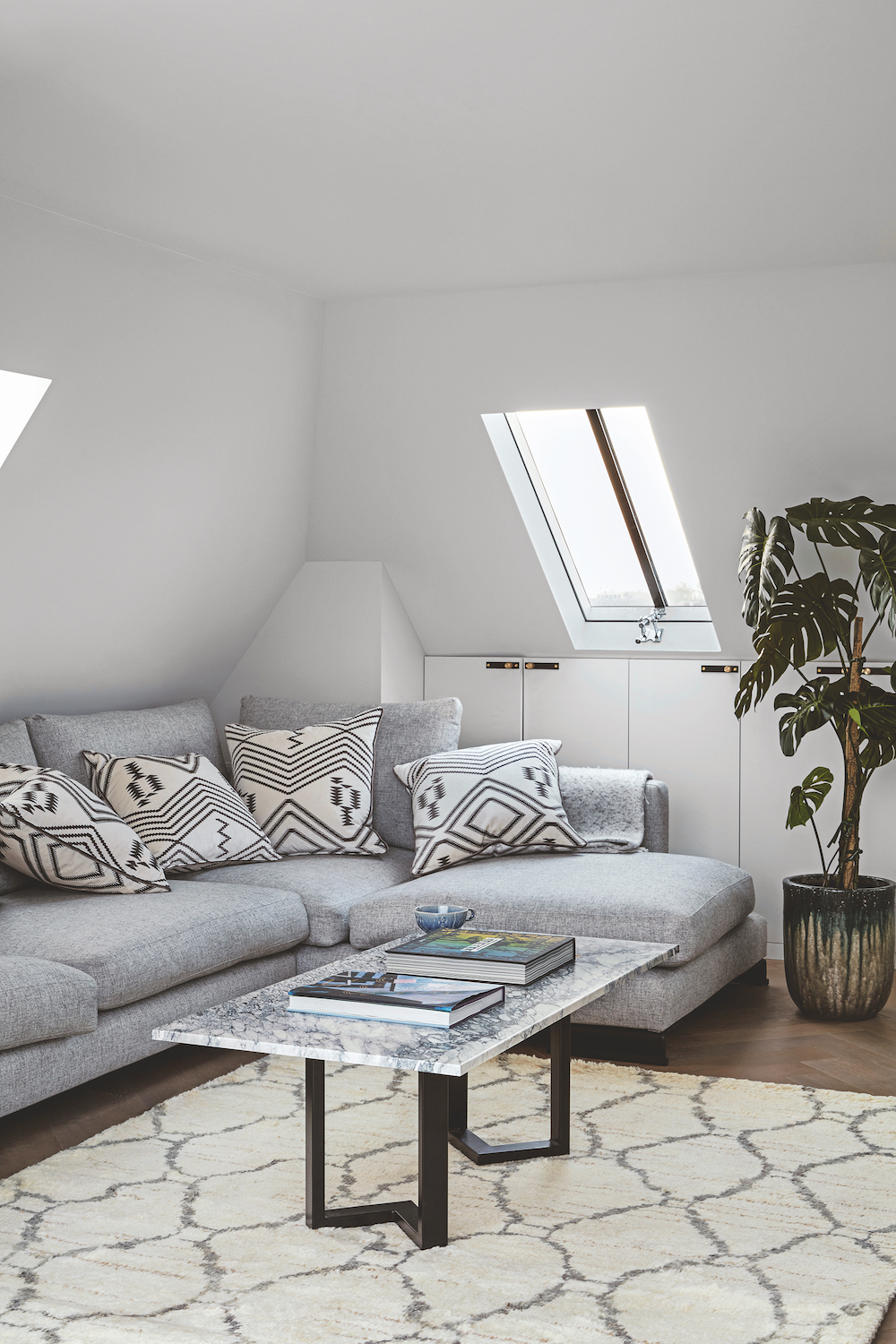
An L-shaped sofa is an effective way to maximize a seating arrangement in a compact space. As well as taking up a smaller footprint than a three-seater and separate accent chair, it looks neater and less cluttered too.
"In a small room, tuck an L-shaped sofa into a corner to open up the rest of the space," says Irene Gunter, co-founder of Gunter & Co.
8. Mark out a subtle entryway
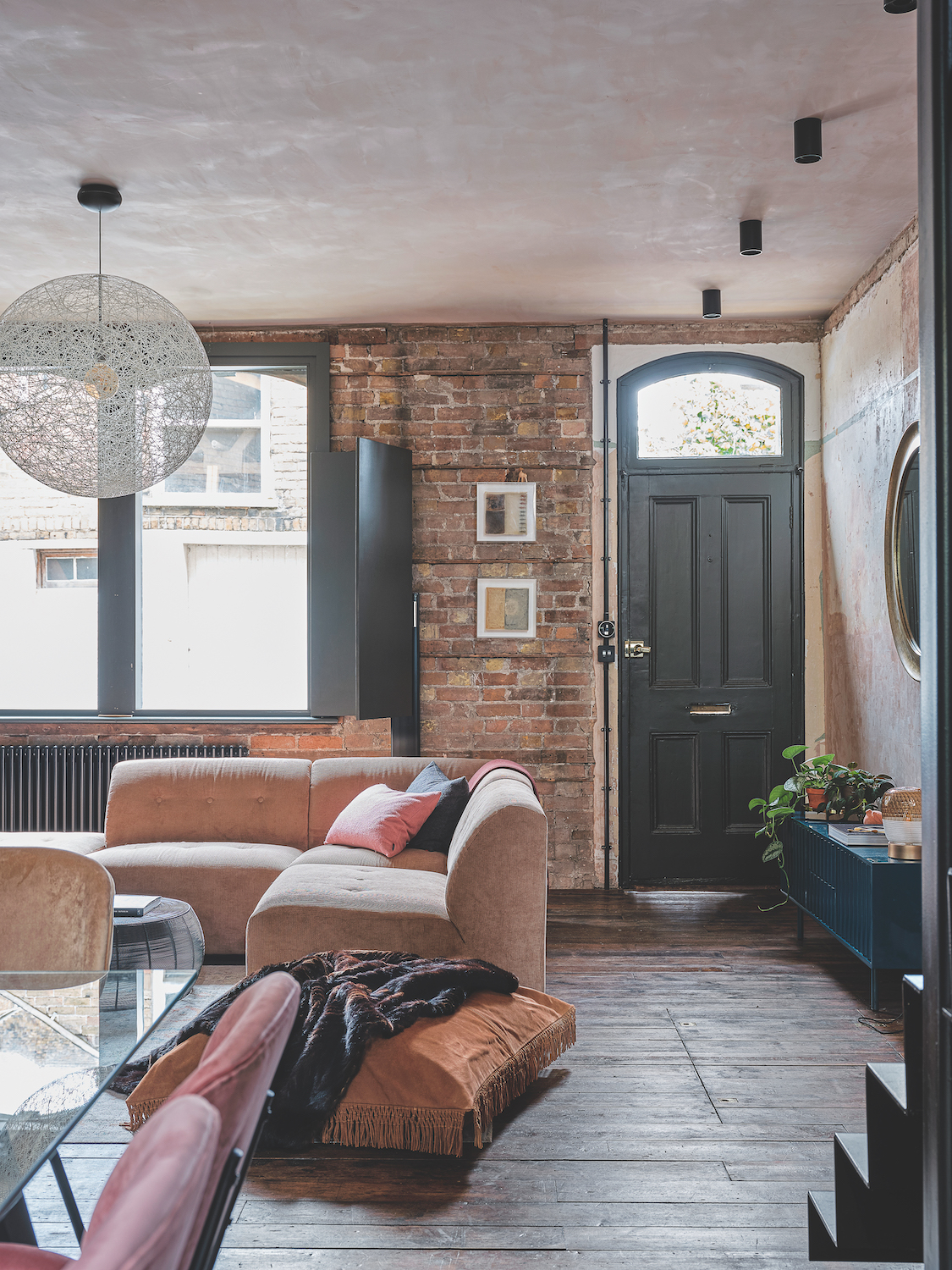
An advantageous sectional sofa idea is that, depending on the configuration and where it's placed, it can be used to close a space off or open one up, making it a great way to decorate a living room with no entryway.
By positioning a corner sofa so that one side has its back to the front door, you create a perimeter around the open living area; this will help to provide a feeling of privacy.
9. Future-proof your family living room
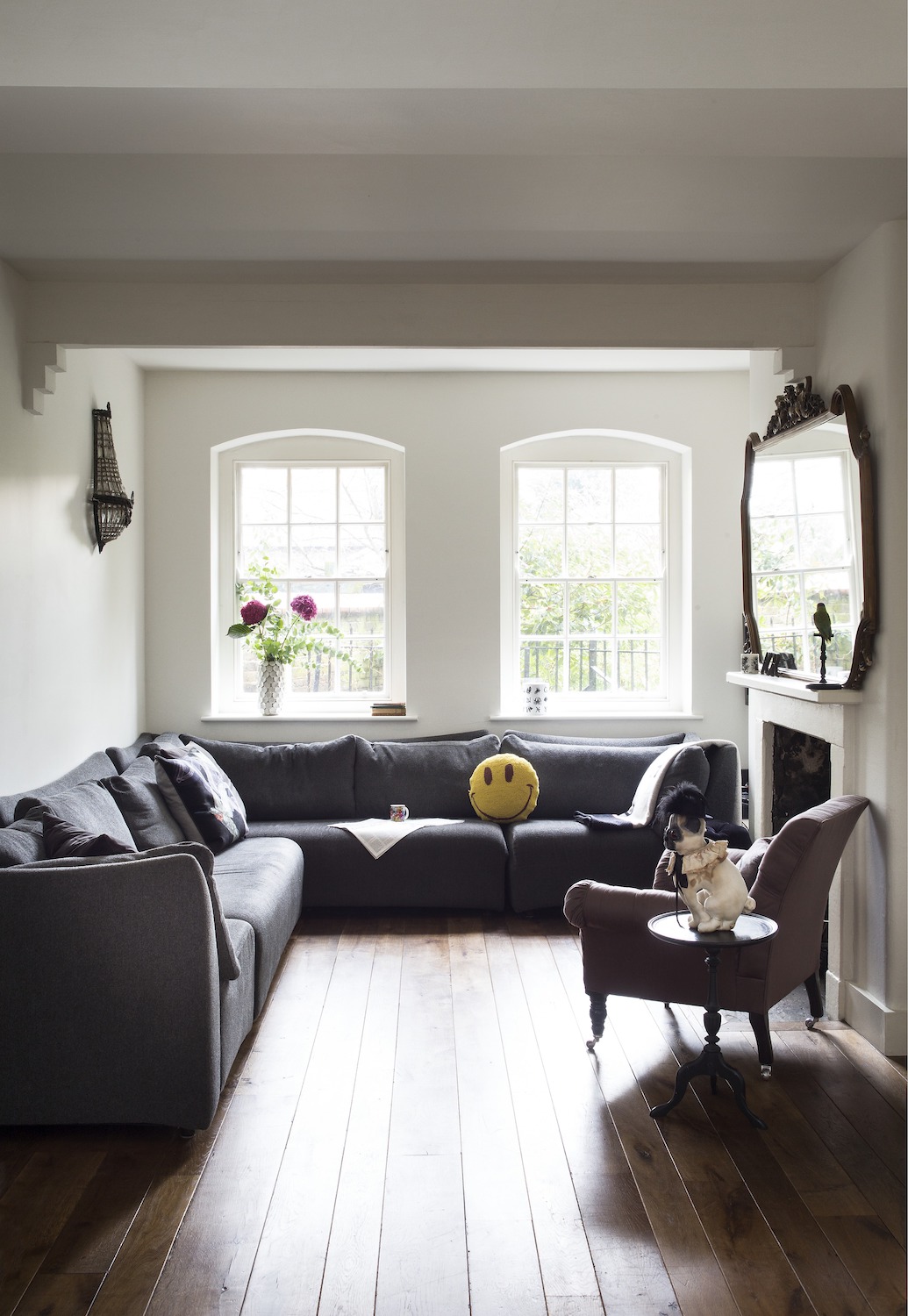
Corner sofas are a great way to accommodate the whole family. "They're particularly useful for families, who want a comfortable option for snugs, TV rooms, and family rooms, while still having lots of available seating," says Zoe Bailey.
Buying a sectional sofa also offers the flexibility to expand it at a later date with tables, ledges, or more seating, if required. "Modular sofas are often selected with one eye on the future as it is a system that can be re-configured if necessary," says Chaplins' Denis Barclay. "Its versatility means it can be purchased to suit one space, then sections can be added to, or made smaller to be used in an entirely different area of the home.'
10. Team with a table for elegant dining nook
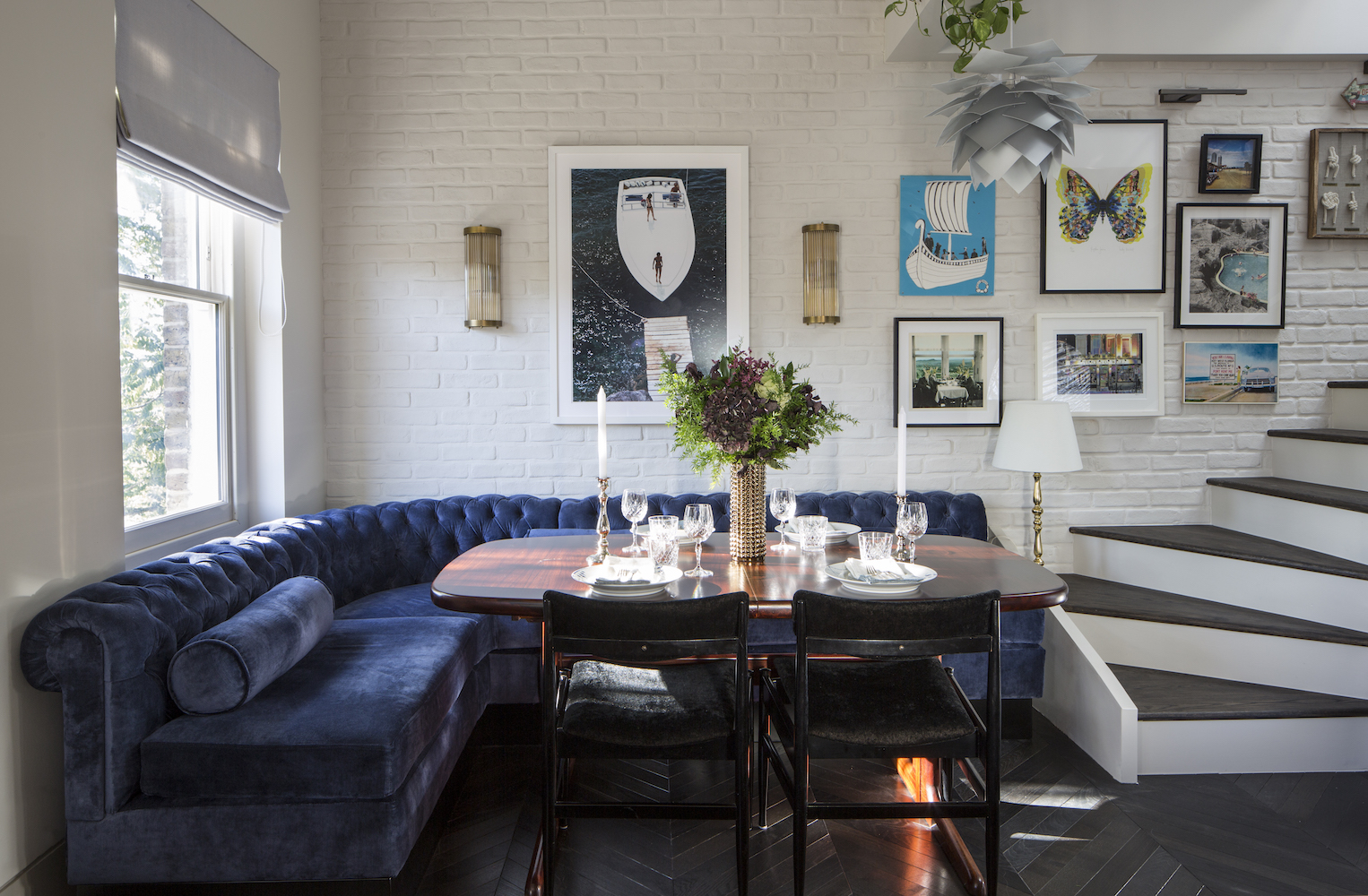
Perhaps one of the more surprising sectional ideas, in a large, open-plan living space, sectional sofas can be used to create a cozy banquette seating setting in a dining room. If a truly bespoke option is out of the budget, check what modifications retailers offer. Most have a host of sizes and configurations that will enable you to tailor a sectional sofa to suit the size of space you have.
"Sectional seating allows you to get creative and turn an awkward space into something more useful and elegant," says Cat Dal, founder of Cat Dal Interiors.
FAQs
How do you layout a room with a sectional?
When working out where to position a sectional in your living room, it's important to first consider how the sofa will be used, as well as the flow with other furniture pieces.
"A sectional sofa is great for a space that's main use will be to lounge in front of a living room TV, but when paired with a drinks cabinet, the sofa also becomes the social hub of the room," says Zoe Bailey, an associate at StudioMorey. "This gives the overall design a range of uses from day to night, and from family film to social gatherings."
And then, of course, there is the architecture of the room to work around. Do you have a wall to run it along? A corner to wrap it around? A window to sit below? Or a large room that needs to be zoned or separated?
But sometimes there aren't so many choices. "If in doubt, choose a slightly smaller sofa with a chaise element and bring in an armchair or an ottoman," says Zoe. "This can add interest to a large room, with more textures and materials, as well as giving more seating options."
The benefit of a sectional is that most on the market are modular and therefore customizable. "Modular sofas can be entirely customized to fit the living room layout, whether it's a family sofa or a lounge used for entertaining," continues Zoe. "Having a choice of armrests, back heights, ledges, and ottomans provides an endless amount of potential uses."
Do sectionals make a room look small?
As they tend to take up more space, sectionals can make a living room look smaller, "but cozier," says interior designer Lucie Ayres, founder and principal designer at Los Angeles-based 22 Interiors.
"A sectional doesn't allow for as much flexibility in terms of layout and flow, it takes up more visual space and therefore can make the overall room feel smaller," she continues.
But there are ways to combat this. Apart from several small living room layout ideas, you can also use color to help make a sectional 'disappear' into the space. By matching your sofa color to the wall color, it will look less obvious and take up less visual space. Similarly, opting for a low-slung style sofa can help make the room feel bigger and more spacious than it may be.
What furniture to pair with a sectional?
While the customizable nature of sectionals makes them great for providing ample seating themselves, it's also a popular choice to pair other furniture with sectionals to create a more conversational setup.
Armchairs and ottomans are an obvious example, positioned opposite a U-shaped sectional. A coffee table in the middle of a U-shaped arrangement can be easily accessed by everyone, while side tables at either end also work to make sure everyone has somewhere to rest a drink.







